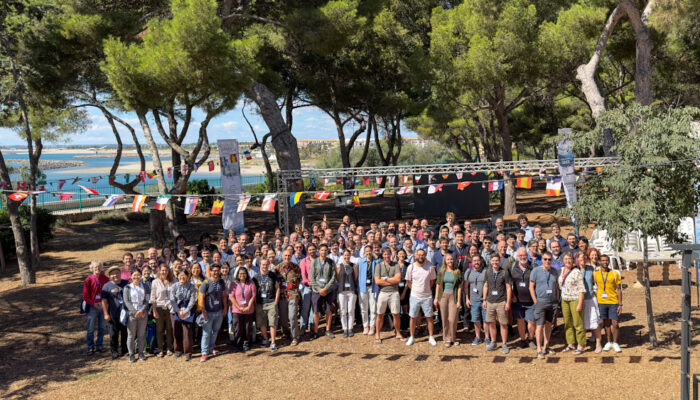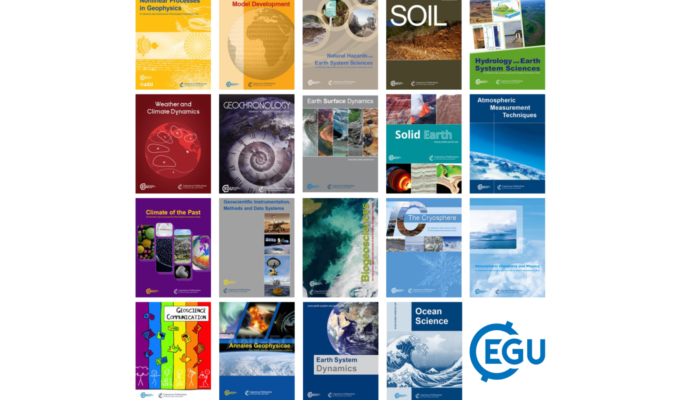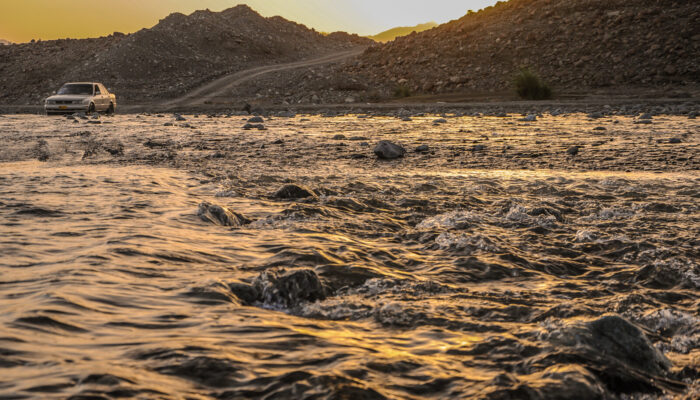Ada Lovelace Poster Awardees A new edition of the Ada Lovelace workshop took place this year in Sète (1-6 septembre 2024), in the exceptional setting of the Domaine du Lazaret by the Mediterranean Sea. Sincere thanks go to Fanny Garel, Catherine Thoraval, and all the Montpellier team for the excellent organization of this event. This worshop provided an opportunity for the community of mantle and ...[Read More]
If you didn't find what you was looking for try searching again.
Cryospheric Sciences
World Mental Health Day 2024 with a focus on workplace
Friday the 10 October, was World Mental Health Day, a day that was founded by the World Federation for Mental Health (WFMH) in 1992. This year’s official theme focuses specifically on mental health in the work environment. So let’s take a look at what this means for the field of academia and the cryosphere specifically. With this post, we aim to not only raise awareness of the mental health crisis ...[Read More]
Geomorphology
Highlights from Hawaii: Threshold dependent canyon incision?
This blog post is part of our series: “Highlights” for which we’re accepting contributions! Please contact one of the GM blog editors, Emily (emily.bamber@utexas.edu) or Emma (elodes@asu.edu), if you’d like to contribute on this topic or others. by Emma Lodes, Postdoctoral Researcher, Arizona State University, USA Email: elodes@asu.edu I stood knee-deep in the middle of the stream, sopping wet fr ...[Read More]
Natural Hazards
Education and Awareness as Pillars for a Disaster-Resilient Future – An Interview with Marina Morando, Programme Director at CIMA Research Foundation
This year, the International Day for Disaster Risk Reduction, observed on October 13th, emphasises the crucial role of education in mitigating disaster risks. In this insightful interview, we have the pleasure of discussing this important topic with Engineer Marina Morando, Programme Director at the CIMA Research Foundation in Italy. She brings extensive research and operational experience in civi ...[Read More]
Geodynamics
Between the Volcano and the Deep Blue Sea: Tales from Montserrat (Part 1)
In 1995, the Caribbean Island of Montserrat was shaken by the beginning of one of the most significant volcanic eruptions in recent history: one that profoundly changed the natural, social and economical landscape of the country. Three decades later, Soufrière Hills Volcano and its legacy of destruction still shape the lives of Montserrat’s people. Join us on the first part of our reportage and fi ...[Read More]
GeoLog
GeoTalk: Adriano Sofo, soil chemist and microbiologist, National Geographic Explorer, and EGU Biodiversity Task Force member
Adriano, welcome to GeoTalk! As an Associate Professor of Agricultural Chemistry and Plant Biology, you work a lot on microbiology and chemistry related to soil management. Can you tell us a bit about how your work is relevant for society? Thank you, Chloe! It is a pleasure. My research in soil chemistry and microbiology directly contributes to understanding factors influencing crop yield and qual ...[Read More]
GeoLog
GeoRoundup: the highlights of EGU Journals published during September!
Each month we feature specific Divisions of EGU and during the monthly GeoRoundup we put the journals that publish science from those Divisions at the top of the Highlights section. For September, the divisions we are featuring are Geosciences Instrumentation and Data Systems (GI) and Atmospheric Sciences (AS). They are served by the journals: Annales Geophysicae (ANGEO), Atmospheric Chemistry and ...[Read More]
Geodesy
EGU Campfire Geodesy – Share Your Research – Eighth Edition
We are finally back with the 8th edition of Geodesy Campfire – Share Your Research. The Geodesy EGU Campfire Events “Share Your Research” give (early career) researchers the chance to talk about their work. We have two exciting talks; one by Leire Retegui-Schiettekatte and the other by Vipin Kumar Maurya. Below you can find detailed descriptions of their talks. We will have time to network a ...[Read More]
GeoLog
Open flood modelling: Real time inundation and human displacement forecasting is now possible!
Floods are powerful natural events that can wreak havoc on communities and ecosystems. Every year, millions of people are affected by floods, leading to loss of life, damage to homes, and disruption of daily life. This blog post explores a new method for quickly mapping flood zones and predicting their impacts. To help communities and decision-makers better prepare, the authors of a recent publica ...[Read More]
GeoLog
What I wish someone told me early in my career: meet Chloe Hill, our Policy Manager
‘What I wish someone told me early in my career’ is a new Geolog series that aims to provide valuable insights and guidance to early-career professionals within the European Geosciences Union (EGU) community. Each month, I will interview a staff member of EGU to share their personal career journey, experiences, challenges faced, and the tips they wish they had received earlier in their careers. Th ...[Read More]










